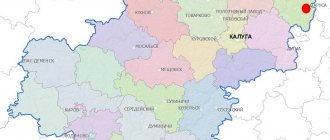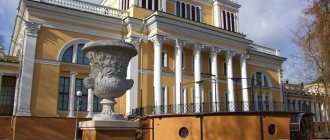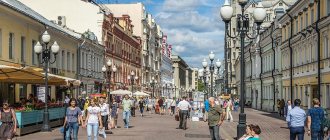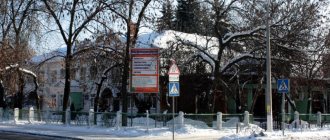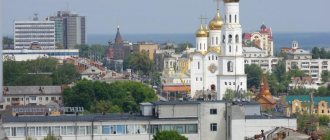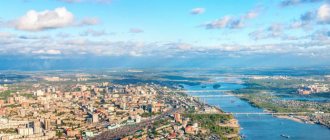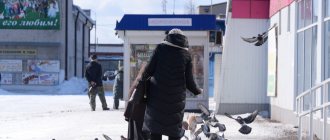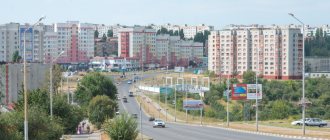Ramenskoye attracts with its functionality and modernity
The city of Ramenskoye is one of the most beautiful cities in the Moscow region. Bright, rainbow-colored buildings, well-kept courtyards with landscaped children's playgrounds, garden sculptures, bright flower beds, vertical flower beds and delightful fountains, in general, there is something to admire here. In the very center of the city, a most picturesque picture opens up to our eyes - a magnificent large lake, bearing the name “Borisoglebskoe”, surrounded by a shady old park with centuries-old, including relict trees.
In terms of improvement and grooming, the city of Ramenskoye has been taking a leading position among the cities of the Moscow region for many years and is among the first in the All-Russian competition “The Best City of Russia”.
Currently, both the city itself and the Ramensky district as a whole are rapidly developing and becoming younger, their appearance is changing.
I am glad that the district authorities are striving to create favorable conditions for the upbringing and education of children, considering this one of the most important tasks. The city has many children's development centers, music and art schools, clubs, and clubs. Their goal is the fullest development of the child’s abilities, while using the most modern and effective teaching and upbringing methods.
The area has a well-developed physical culture and sports movement. The new multifunctional physical culture complex Borisoglebsky Sports Palace has many sports and developmental sections and clubs, and the first prestigious European badminton tournament “Eurocup-2008” was held here in June 2008. In particular, in Ramenskoye there is a successfully operating equestrian club with a hippodrome, an ice palace, several swimming pools, stadiums and sports schools.
The city has a large number of large shopping and entertainment centers, chain stores and hypermarkets, where profitable shopping can be perfectly combined with an equally magnificent vacation.
Development
Currently, a master plan for the development of Bronnitsy has been adopted. The development of the city is planned within the existing territories using currently unused areas. It is predicted that by 2022 the area of the city's housing stock will increase from 449.2 thousand m² to 750.7 thousand m². At the same time, the population will increase to 25,000 people.[6]
Since 2009, freight traffic on the road bridge across the Moscow River within Bronnitsy has been closed; in 2011, construction began on a new bridge 30 meters downstream. Within the city, in December 2011, the construction of a two-level traffic interchange was completed at the intersection of the M-5 Ural highway with the Small Moscow Ring. In October 2014, a section of the M-5 highway bypassing the city was opened.
A grandiose project is starting in Ramensky district
In order to form the tourism industry and its development, a large entertainment complex “Parkland”, also known as the Russian “Disneyland”, is being designed in the Ramensky district. On its territory, 300 hectares, there will be dozens of attractions, among which there will certainly be a roller coaster (the first in Russia), an autodrome, a safari park with animals in the middle zone, an arboretum and golf courses. It is planned to create a large artificial lake, 50 hectares in size, where it will be possible to go boating and have fun on water attractions. There are also plans to build a Formula 1 track in Parkland.
One of the highlights of Parkland is the binomials, which are unfamiliar to Russians. These spherical pavilions, 50 meters high and 150 meters wide, with different natural conditions, will be located throughout the park. Under each dome there will be a specific “continent” - Africa, Australia, South America, etc. - with characteristic flora and fauna, bodies of water and other signs of a particular natural area. In one day, a visitor will be able to make a “trip around the world”, visiting all the climate zones of the Earth at once. This project is unique. There are no analogues in the world.
Links
Moscow region Urban districts Balashikha • Bronnitsy • Vlasikha (ZATO) • Voskhod (ZATO) • Dzerzhinsky • Dolgoprudny • Domodedovo • Dubna • Yegoryevsk • Zhukovsky • Zvenigorod • Star City (ZATO) • Ivanteevka • Kashira • Kolomna • Korolev • Kotelniki • Krasnoarmeysk • Krasnoznamensk (ZATO) • Lobnya • Losino-Petrovsky • Lytkarino • Molodezhny (ZATO) • Mytishchi • Ozyory • Orekhovo-Zuevo • Podolsk • Protvino • Pushchino • Reutov • Roshal • Serebryanye Prudy • Serpukhov • Fryazino • Khimki • Chernogolovka • Elektrogorsk • Elektrostal • Shakhovskaya
The city of Bronnitsy and the science city of Zhukovsky are also located in the district.
Bronnitsy has a large number of educational institutions and branches of Moscow universities. There is a children's art school, departments: piano, folk instruments, vocal and wind. In the city there is a cultural and leisure center, on the basis of which there are a folk vocal and pop studio, a dance studio, a children's creativity studio, a youth center specializing in holding competitions "Miss and Mister Bronnitsy", and here the preparation and holding of rock concerts and the annual Day of youth. In the city of Bronnitsy, on the basis of the House of Children's Creativity, the rock group “Gran-Courage” was founded in 1999. The city also has exhibition halls with constantly updated exhibitions, a local history museum, and a city and children's library.
In the city of Bronnitsy on Lake Belsky there is a sports complex. There is a specialized children's and youth school of the Olympic reserve, as well as a state school of the Olympic reserve, specializing in kayaking and canoeing, football.
And for fans of sport fishing, in March and November the open individual championship of the city of Bronnitsy in winter coastal spinning takes place.
The city is famous for its ancient temples, and, importantly, all of them are still functioning to this day. The Archangel Cathedral, built in 1705, is an architectural monument; the churches of St. John the Merciful and the Dormition of the Mother of God, creations of the 19th century, are also noteworthy. It is curious that to this day, the regular layout of the late 18th century has been preserved in the city center.
It is noteworthy that Ivan Pushchin, a Decembrist and friend of Alexander Sergeevich Pushkin, once lived and worked in the city of Bronnitsy. An invaluable contribution to the improvement and development of the city was made by the poet's direct descendants - the eldest son Alexander Alexandrovich Pushkin, who was a peace mediator in the Bronnitsky district from 1862 to 1866, as well as the poet's grandson - Alexander Alexandrovich Pushkin Jr. From 1890 he was the head of the zemstvo, and from 1897 to 1916 he was the chairman of the Bronnitsy district zemstvo council. Rock musician Alexander Barykin also lived and worked in the city of Bronnitsy.
Story
Bronnitsy has been known since 1453 as a large trading village of Bronichi.
on the Astrakhan tract.[2] The village was the patrimony of the Moscow princes, then the Russian tsars[3]. At the end of the 17th century, under Tsar Fyodor Alekseevich, a stud farm was founded in Bronnitsy.
In 1618, the city was ravaged by the Cossacks of Hetman Sagaidachny, who were in Polish service.
Under Peter I, the village was transferred to Prince Alexander Menshikov. In 1727 it again went to the palace department.
By decree of Catherine II of October 5, 1781, in connection with the establishment of a new administrative division, Bronnitsy received the status of a district town, becoming the center of the newly formed Bronnitsy district of the Moscow province.[4]
The French army, which left Moscow in the fall of 1812, caused great damage to the city.
On April 16, 1964, mass riots occurred in the city - about 300 people destroyed the bullpen, where a city resident died from beatings. 8 people were brought to criminal responsibility[5].
In 1990, Bronnitsy was included in the list of historical cities of Russia.
In 1992, the city of Bronnitsy received the status of a city of regional subordination and a new city boundary, according to which the city area increased from 600 hectares to 2216 hectares.
Excerpt characterizing Bronnitsy
Pierre gradually began to come to his senses and look around the room where he was and the people in it. Around a long table covered in black sat about twelve people, all in the same clothes as those he had seen before. Pierre knew some of them from St. Petersburg society. An unfamiliar young man sat in the chair, wearing a special cross around his neck. On the right hand sat the Italian abbot, whom Pierre had seen two years ago at Anna Pavlovna's. There was also one very important dignitary and a Swiss tutor who had previously lived with the Kuragins. Everyone was solemnly silent, listening to the words of the chairman, who was holding a hammer in his hand. There was a burning star embedded in the wall; on one side of the table there was a small carpet with various images, on the other there was something like an altar with a Gospel and a skull. Around the table there were 7 large, church-like candlesticks. Two of the brothers brought Pierre to the altar, put his legs in a rectangular position and ordered him to lie down, saying that he was throwing himself towards the gates of the temple. “He must get a shovel first,” one of the brothers said in a whisper. - A! completeness please,” said another. Pierre, with confused, myopic eyes, disobeying, looked around him, and suddenly doubt came over him. "Where I am? What am I doing? Are they laughing at me? Will I be ashamed to remember this? But this doubt lasted only for an instant. Pierre looked back at the serious faces of the people around him, remembered everything he had already gone through, and realized that he could not stop halfway. He was horrified by his doubt and, trying to evoke in himself the former feeling of tenderness, he threw himself towards the gates of the temple. And indeed a feeling of tenderness, even stronger than before, came over him. When he had been lying there for some time, they told him to get up and put on him the same white leather apron that the others were wearing, they gave him a shovel and three pairs of gloves, and then the great master turned to him. He told him to try not to stain the whiteness of this apron, which represents strength and purity; then about the unknown shovel he said that he should work with it to cleanse his heart from vices and condescendingly smooth over the heart of his neighbor with it. Then about the first men’s gloves he said that he could not know their meaning, but must keep them, about other men’s gloves he said that he should wear them in meetings, and finally about the third women’s gloves he said: “Dear brother, and these women’s gloves are for you.” the essence is determined. Give them to the woman you will honor the most. With this gift, assure the one whom you choose as a worthy stonemason of the integrity of your heart.” And after being silent for a while, he added: “But be careful, dear brother, that these gloves are not adorned by unclean hands.” While the great master uttered these last words, it seemed to Pierre that the chairman was embarrassed. Pierre became even more embarrassed, blushed to the point of tears, like children blush, began to look around restlessly, and an awkward silence ensued. This silence was interrupted by one of the brothers, who, leading Pierre to the carpet, began to read from a notebook an explanation of all the figures depicted on it: the sun, the moon, the hammer. a plumb line, a shovel, a wild and cubic stone, a pillar, three windows, etc. Then Pierre was assigned his place, they showed him the signs of the box, said the opening word and finally allowed him to sit down. The Great Master began to read the charter. The charter was very long, and Pierre, from joy, excitement and shame, was not able to understand what was being read. He listened only to the last words of the charter, which he remembered. “In our temples we do not know other degrees,” the great master read, “except those that are between virtue and vice. Beware of making any distinction that might violate equality. Fly to the aid of your brother, no matter who he is, guide the erring one, lift up the falling one, and never harbor anger or enmity against your brother. Be kind and friendly. Stir up the fire of virtue in all hearts. Share your happiness with your neighbor, and may envy never disturb this pure pleasure. Forgive your enemy, do not take revenge on him, except by doing him good. Having thus fulfilled the highest law, you will find traces of the ancient majesty you have lost.” He finished and, standing up, hugged Pierre and kissed him. Pierre, with tears of joy in his eyes, looked around him, not knowing how to respond to the congratulations and renewal of acquaintances with whom he was surrounded. He did not recognize any acquaintances; in all these people he saw only brothers with whom he was eager to get down to business. The great master slammed his hammer, everyone sat down, and one read a lesson on the need for humility. The great master offered to perform the last duty, and an important dignitary, who bore the title of alms collector, began to make the rounds of the brothers. Pierre wanted to write down all the money he had on the alms sheet, but he was afraid to show pride by doing so, and he wrote down the same amount as others wrote down. The meeting was over, and upon returning home, it seemed to Pierre that he had come from some long journey, where he had spent dozens of years, had completely changed and fell behind the previous order and habits of life. The next day after being admitted to the lodge, Pierre sat at home, reading a book and trying to understand the meaning of the square, which depicted God on one side, moral on the other, physical on the third, and mixed on the fourth. From time to time he looked up from the book and the square and in his imagination made up a new life plan for himself. Yesterday in the box he was told that a rumor about a duel had reached the sovereign's attention, and that it would be more prudent for Pierre to leave St. Petersburg. Pierre intended to go to his southern estates and take care of his peasants there. He was joyfully pondering this new life when Prince Vasily suddenly entered the room. – My friend, what have you done in Moscow? Why did you quarrel with Lelya, mon сher? [my dear?] “You are mistaken,” said Prince Vasily, entering the room. “I found out everything, I can tell you correctly that Helen is innocent before you, like Christ before the Jews.” - Pierre wanted to answer, but he interrupted him. “And why didn’t you address me directly and simply as a friend?” “I know everything, I understand everything,” he said, “you behaved as befits a person who values his honor; It may be too hasty, but we won’t judge that. Just remember the position in which you place her and me in the eyes of the whole society and even the court,” he added, lowering his voice. – She lives in Moscow, you are here. Remember, my dear,” he pulled him down by the hand, “there is one misunderstanding here; I think you feel it yourself. Write a letter with me now, and she will come here, everything will be explained, otherwise I’ll tell you, you can get hurt very easily, my dear. Prince Vasily looked at Pierre impressively. “I know from good sources that the Empress Dowager takes a keen interest in this whole matter.” You know, she is very merciful to Helen. Several times Pierre was going to speak, but on the one hand, Prince Vasily did not allow him to do so, on the other hand, Pierre himself was afraid to start speaking in that tone of decisive refusal and disagreement in which he firmly decided to answer his father-in-law. In addition, the words of the Masonic charter: “be kind and friendly” came to his mind. He winced, blushed, stood up and fell down, working on himself in the most difficult task in his life - to say something unpleasant to a person’s face, to say something that was not what this person, no matter who he was, expected. He was so accustomed to obeying this tone of Prince Vasily’s careless self-confidence that even now he felt that he would not be able to resist it; but he felt that his entire future fate would depend on what he said now: whether he would follow the old, former road, or along that new one, which was so attractively shown to him by the Masons, and on which he firmly believed that will find rebirth to a new life. “Well, my dear,” said Prince Vasily jokingly, “tell me: “yes,” and I will write to her on my own behalf, and we will kill the fat calf.” - But Prince Vasily did not have time to finish his joke, when Pierre, with a fury in his face that reminded him of his father, without looking into the eyes of his interlocutor, said in a whisper: - Prince, I did not invite you to my place, go, please, go! “He jumped up and opened the door for him. “Go,” he repeated, not believing himself and rejoicing at the expression of embarrassment and fear that appeared on Prince Vasily’s face. - What happened to you? You are sick? - Go! – the trembling voice spoke again. And Prince Vasily had to leave without receiving any explanation. A week later, Pierre, having said goodbye to his new friends, the Freemasons, and leaving them large sums of alms, left for his estates. His new brothers gave him letters to Kyiv and Odessa, to the Freemasons there, and promised to write to him and guide him in his new activities. The affair between Pierre and Dolokhov was hushed up, and, despite the sovereign’s then strictness regarding duels, neither both opponents nor their seconds were harmed. But the story of the duel, confirmed by Pierre’s breakup with his wife, became public in society. Pierre, who was looked upon condescendingly and patronizingly when he was an illegitimate son, who was caressed and glorified when he was the best groom of the Russian Empire, after his marriage, when brides and mothers had nothing to expect from him, lost greatly in the opinion of society, especially that he did not know how and did not want to curry public favor. Now he alone was blamed for what had happened, they said that he was a stupid jealous person, subject to the same fits of bloodthirsty rage as his father. And when, after Pierre’s departure, Helen returned to St. Petersburg, she was not only cordially, but with a touch of respect for her misfortune, received by all her acquaintances. When the conversation turned to her husband, Helen adopted a dignified expression, which she, although not understanding its meaning, with her characteristic tact, adopted for herself. This expression said that she decided to endure her misfortune without complaining, and that her husband was a cross sent to her from God. Prince Vasily expressed his opinion more openly. He shrugged his shoulders when the conversation turned to Pierre, and, pointing to his forehead, said: “Un cerveau fele – je le disais toujours.” [Half-crazy - I always said that.] “I said in advance,” Anna Pavlovna said about Pierre, “I said right then, and before everyone else (she insisted on her primacy), that this is a crazy young man, spoiled by the depraved ideas of the century. I said this back then, when everyone admired him and he had just arrived from abroad, and remember, one evening I thought he was some kind of Marat. How did it end? I didn’t want this wedding then and predicted everything that would happen. Anna Pavlovna continued to host such evenings on her free days as before, and those that she alone had the gift of arranging, evenings at which she gathered, firstly, la creme de la veritable bonne societe, la fine fleur de l' essence intellectuelle de la societe de Petersbourg, [the cream of a truly good society, the color of the intellectual essence of St. Petersburg society,] as Anna Pavlovna herself said. In addition to this refined choice of society, Anna Pavlovna’s evenings were also distinguished by the fact that every time at her evening Anna Pavlovna presented her society with some new, interesting face, and that nowhere, as at these evenings, was the degree of the political thermometer expressed so clearly and firmly, on which the mood of the court legitimist St. Petersburg society stood. At the end of 1806, when all the sad details had already been received about Napoleon’s destruction of the Prussian army near Jena and Auerstätt and about the surrender of most of the Prussian fortresses, when our troops had already entered Prussia, and our second war with Napoleon began, Anna Pavlovna gathered at her place evening. La creme de la veritable bonne societe [The cream of real good society] consisted of the charming and unhappy Helene, abandoned by her husband, from MorteMariet, the charming Prince Hippolyte, who had just arrived from Vienna, two diplomats, an aunt, one young man who enjoyed living room with the name simply d'un homme de beaucoup de merite, [a very worthy person], one newly granted maid of honor with his mother and some other less noticeable persons. The person with whom Anna Pavlovna treated her guests like a novelty that evening was Boris Drubetskoy, who had just arrived as a courier from the Prussian army and was an aide-de-camp to a very important person.
